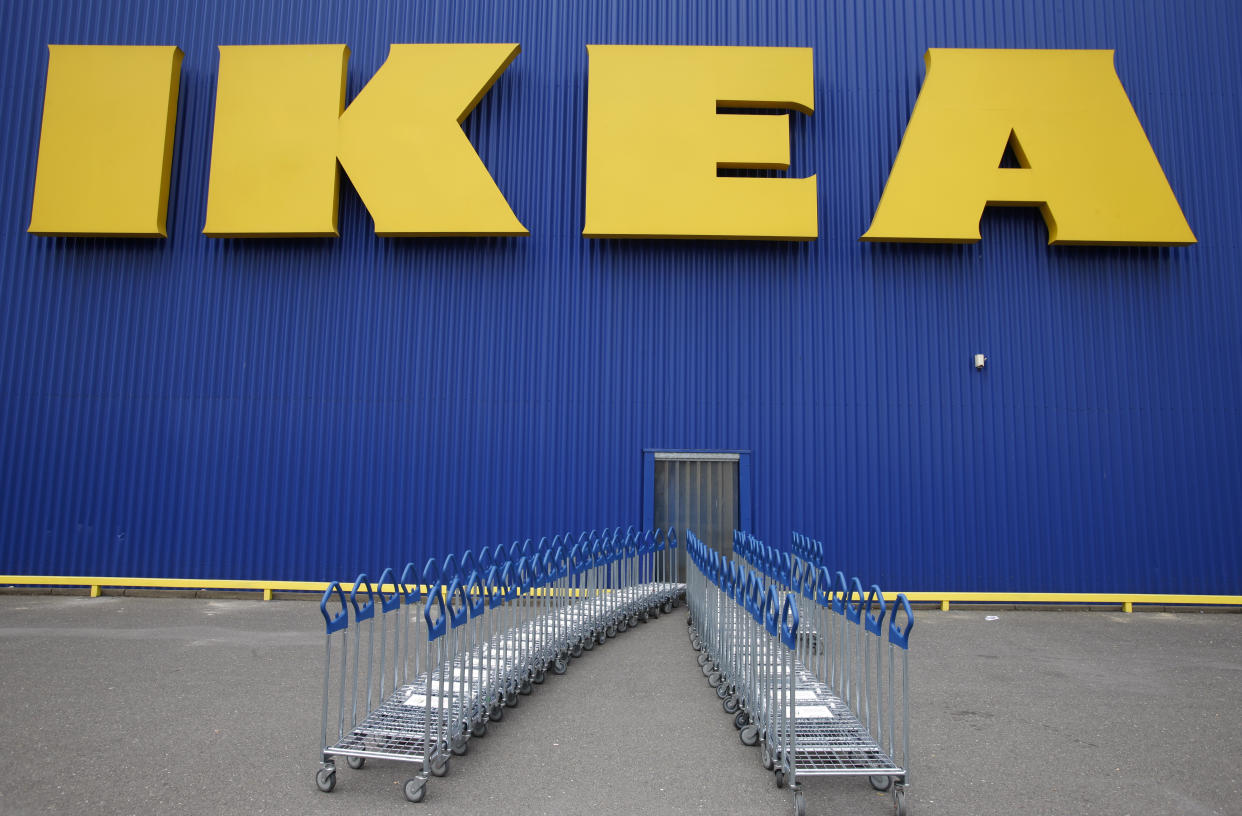‘Something awful has to happen’: The fear on IKEA exec’s mind

IKEA Australia’s sustainability manager, Mellisa Miller, has a lot to be hopeful about.
In her role, she can see a growing demand for more sustainable options, from vegetarian food to better packaging. And with IKEA itself kicking off its Year of Sustainability, she has a front row seat as one of the world’s biggest companies moves to become more green.
However, talking to Yahoo Finance, Miller revealed that she is still concerned the world isn’t moving fast enough to combat climate change.
“What concerns me the most is that for a lot of people, whether it’s businesses, government or citizens, in order to really make a big change or for a lot of people to address the issue, usually something bad has to happen,” Miller said.
Also read: 4:30am starts and Scrabble to end: How IKEA leader gets it done
Also read: Ikea will pay you $150 an hour to ‘create happiness’
Also read: How to make hundreds of dollars from your old IKEA furniture
Miller noted Globe Scan research finding that between 2019 and 2020, the percentage of Australians who say they know a fair amount about climate change has increased from 49 per cent to 61 per cent, with the bushfires a catalyst for many to learn more.
“It was just unfortunate that we had to go through that to realise, ‘Oh, it is happening and some certainly have to do something about it.’”
She said it’s something the world is also seeing with Covid-19. “Something awful has to happen to really make the majority of the people change their behaviour and reflect.”
Reason to be upbeat
Despite this concern, Miller believes IKEA has a big role to play in meeting the world’s climate goals, with the furniture giant working to become a truly circular business.
That means that no waste is added to the system, with all unwanted products upcycled, reused or redesigned. It’s also working to have all IKEA plastic be made from renewed or recycled materials by 2030, while simultaneously phasing out single-use plastic and introducing solar panels to its product range.
Customers can also return used and unwanted products to the store and receive cash back under its buy-back service, in a bid to divert old products from entering landfill.
And while it may seem counterintuitive for a furniture brand known for its affordability to want customers to make more thoughtful, and perhaps fewer, purchasing decisions, Miller said it plays right into IKEA’s focus.
“It’s looking not just at, ‘More sales and more volume will give you a profit,’ it’s also looking at areas where you can reduce your costs,” she said.
“If I was to take it pretty black and white, you can’t always think you need to work more hours to get more money – it’s more a question of, how do I reduce on costs like electricity or water?” she said.
“So you start looking at those areas and you see, ‘Where are we actually leaving money?’”
For IKEA, this meant considering where they were sourcing their food from and finding cheaper and more local options, and doing the same with their textile and manufacturing options, with a priority on manufacturers who can also repurpose waste.
“That will reduce the amount of money that we send to landfill, and that’s where we’ll save money… It’s just looking at things in a creative way and working together more locally and nationally. That will be the most cost-effective way in the end.”
Changing consumer habits
At the same time as IKEA is moving to supply more sustainable options, Australian consumers are demanding it.
Miller said sustainably-minded shoppers in Australia are unique in that they, more than many other countries, want to be able to see that their contributions have made a difference.
“[Shoppers want to know], ‘How can I see the repercussions of my actions? If I’m going to change my behaviour, I need to see some sort of result,’” Miller said.
“That’s the biggest thing that matters the most to Australian shoppers, so it’s not just monetary value, it has to be something that’s tangible that they can see.”
Australian shoppers are increasingly looking to their dietary habits as areas for change as well, with an increased focus on how to grow and conserve food and minimise food waste, as well as growing demand for vegetarian options.
And beyond shopping, Australians – especially younger generations – are pushing for and achieving change.
“I think when the younger generation says, ‘This is really important,’ we tend to listen to them a bit more. It’s more personal,” Miller said.
In turn, she said this is pushing Australians to reconsider their own habits and ask questions like, ‘Why did I think this was okay?’ and, ‘Where did I think this waste was going?’
Tips for going green
Miller’s top tip is to keep it simple: pick a few small things and commit to them.
That could be monitoring how much food you’re throwing away and considering whether there’s another way to use it, or purchase less.
Additionally, spend an extra second to sort waste and rinse items that need it.
Buying second-hand is another easy area to make a difference, as is using public transport or walking to work where possible.
During its Year of Sustainability, IKEA will place diversity and sustainability as its core business focuses for the 2021 financial year.
Make your money work with Yahoo Finance’s daily newsletter. Sign up here and stay on top of the latest money, news and tech news.
Follow Yahoo Finance Australia on Facebook, Twitter, Instagram and LinkedIn.



